
The diesel engine, named after Rudolf Diesel, is an internal combustion engine in which ignition of the fuel is caused by the elevated temperature of the air in the cylinder due to mechanical compression; thus, the diesel engine is called a compression-ignition engine. This contrasts with engines using spark plug-ignition of the air-fuel mixture, such as a petrol engine or a gas engine.
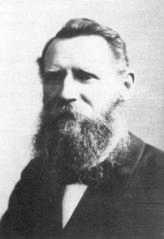
Woldemar Voigt was a German physicist, who taught at the Georg August University of Göttingen. Voigt eventually went on to head the Mathematical Physics Department at Göttingen and was succeeded in 1914 by Peter Debye, who took charge of the theoretical department of the Physical Institute. In 1921, Debye was succeeded by Max Born.

Georg Voigt was a German historian who was born in 1827 in Königsberg in East Prussia. He died in Leipzig in 1891. Voigt was the son of the historian Johannes Voigt. Voigt belonged to the founders of modern research into the Italian Renaissance along with Jacob Burckhardt.
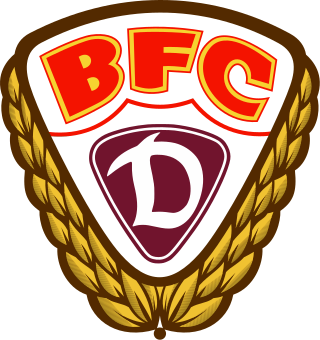
Berliner Fussball Club Dynamo e. V., commonly abbreviated to BFC Dynamo or BFC, alternatively sometimes called Dynamo Berlin, is a German football club based in the locality of Alt-Hohenschönhausen of the borough of Lichtenberg of Berlin. BFC Dynamo was founded in 1966 from the football department of SC Dynamo Berlin and became one of the most successful clubs in East German football. The club is the record champion of East Germany with ten consecutive league championships from 1979 through 1988. BFC Dynamo competes in the fourth tier Regionalliga Nordost. The club enjoys a cross-city rivalry with 1. FC Union Berlin and a historical rivalry with SG Dynamo Dresden. The rivalry with Union Berlin is part of the Berlin derby.
Friedrich Blume was professor of musicology at the University of Kiel from 1938 to 1958. He was a student in Munich, Berlin and Leipzig, and taught in the last two of these for some years before being called to the chair in Kiel. His early studies were on Lutheran church music, including several books on J.S. Bach, but broadened his interests considerably later. Among his prominent works were chief editor of the collected Praetorius edition, and he also edited the important Eulenburg scores of the major Mozart Piano Concertos. From 1949 he was involved in the planning and writing of Die Musik in Geschichte und Gegenwart.

Wilhelm Schäfer was a German writer.
Karl Glitscher was a German physicist who made contributions to quantum mechanics.
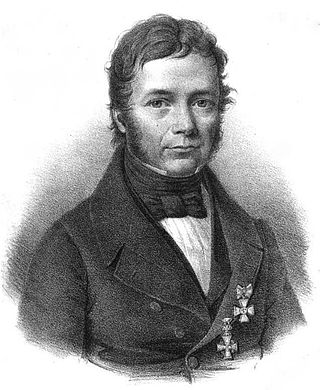
Johannes Voigt was a German historian born in Bettenhausen, which today is situated in the district of Schmalkalden-Meiningen.
The 20th Division was a unit of the Prussian/German Army. It was formed on October 11, 1866, and was headquartered in Hannover. The division was subordinated in peacetime to the X Army Corps. The division was disbanded in 1919 during the demobilization of the German Army after World War I.

The Reichsbanner Schwarz-Rot-Gold was an organization in Germany during the Weimar Republic, formed by members of the center-left Social Democratic Party of Germany (SPD), the centre-right to right-wing German Centre Party, and the centrist German Democratic Party in February 1924. Its goal was to defend German parliamentary democracy against internal subversion and extremism from the left and right and to compel the population to respect and honor the new Republic's flag and constitution. Its name is derived from the Flag of Germany adopted in 1919, the colors of which were associated with the Weimar Republic and liberal German nationalism, and incidentally, were also the traditional party colours of its three founding parties: the Centre Party (black), the Social Democratic Party (red), and the Democratic Party (gold).

Hans Krebs was a German Army general of infantry who served during World War II. A career soldier, he served in the Reichswehr and the Wehrmacht. He served as the last Chief of Staff of the Oberkommando des Heeres (OKH) during the final phase of the war in Europe. Krebs tried to open surrender negotiations with the Red Army; he committed suicide in the Führerbunker during the early hours of 2 May 1945, two days after Adolf Hitler killed himself.

Werner Voigt was a German football coach and player.
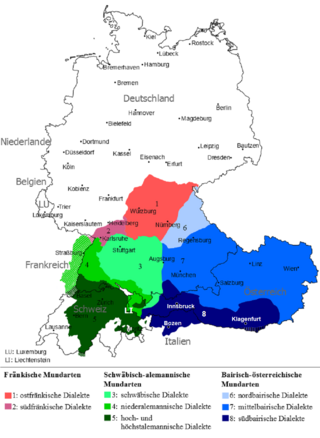
Upper German is a family of High German dialects spoken primarily in the southern German-speaking area.

Konstantin Bernhard von Voigts-Rhetz was a Prussian general who served in the Austro-Prussian War and the Franco-Prussian War.
Hans Voigt was a highly decorated Generalmajor in the Wehrmacht during World War II. He was also a recipient of the Knight's Cross of the Iron Cross.
Anton Loibl GmbH was a company owned by the SS which was a funding source for the Ahnenerbe research branch and the Lebensborn eugenics programme. It was created to market a bicycle reflector invented by Anton Loibl, a chauffeur for Hitler. It employed slave labour.
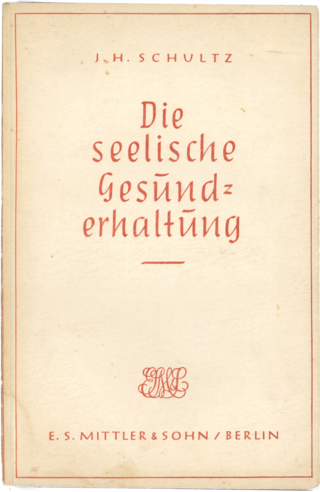
Verlag E.S. Mittler & Sohn GmbH is a German publishing house founded in 1789. Now part of the holdings of Peter Tamm's Tamm Media, it is one of the oldest German publishers still existing.
Sebastian Voigt is a German historian at the Institute for Contemporary History, Munich - Berlin, and a fellow at the Institute for Social Movements, Ruhr University Bochum, Germany. He specializes in the history of the trade union and the labor movement, Antisemitism, (anti)-communism and the history of the political-left.
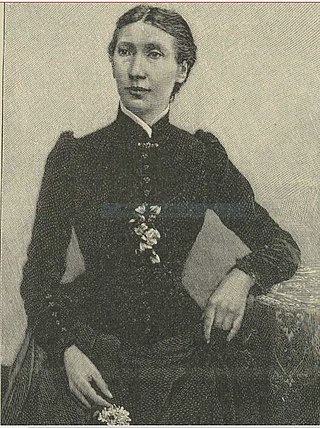
Johanna Ambrosius was a German poet. Born to a poor peasant family in East Prussia, she received little education and did not start writing poetry until around 1884. Her works were published in various magazines and she came to the attention of Austrian writer Karl Weiß who published a collection of her poems. Her fame peaked in the late 1890s and many of her poems were set to music.













